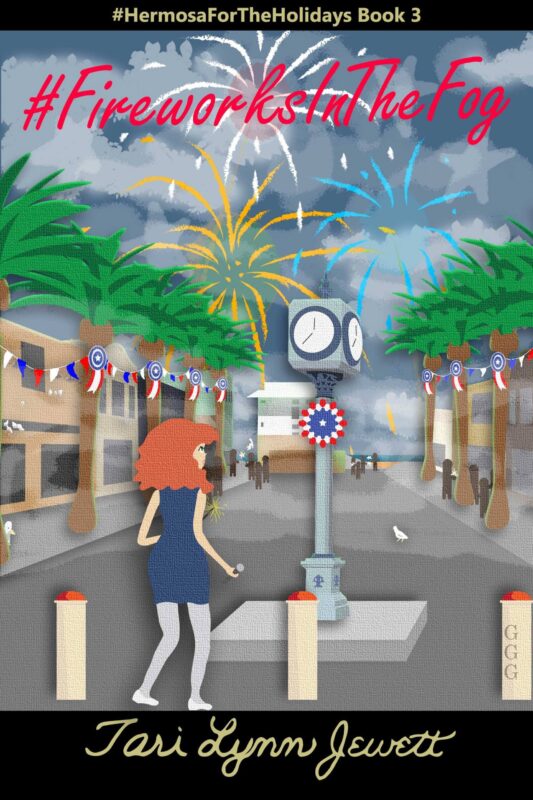GUTS
January 15, 2019 by Rebecca Forster in category The Write Life by Rebecca Forster tagged as choices, writing
A few days ago my mom had a lunch, an affair to show off her Christmas decorations before she started taking them down. There were seven of us munching on layered Jell-O salad, finger sandwiches, and clam chowder. Over coffee, one of the ladies said:
“Tell us again how you started writing.”
I won’t bore you with the story, but my start involved a dare, a lot of hours of butt in the chair, no expectation of ever getting published and absolute terror and self-doubt once my first book went to contract.
When I was finished with my tale, she said: “Wow, that took guts.”
I wanted to tell her that, no, writing my first book didn’t take guts, staying in the industry did. If you’re reading this, and you are writing, you qualify as gutsy.
Every day you make decisions that will change the course of your career: you dig into your own pocket for advertising and public relations, are faced with tough demands from publishers and hard creative choices. Currently, there is a decision many of you will face and that is whether or not to sign a traditional publishing contract that contains a morality clause. Such clauses are included by houses like Simon & Schuster and Penguin Putnam and, if enforced, will void a contract (often asking for advances back and always removing books by the offending authors) because of past, present or future behavior that they consider immoral. ‘They’ – the judge and jury – are the publishers or public outcry on social media or anything that, in the publisher’s opinion, makes your work less saleable.
Morality clauses were nothing new, but in years gone by there were strict codes of morality based on widely accepted public mores and religious guidelines. In this day and age a moral transgression can be determined by a fashionable whim, a person who frivolously points a finger, or a trending Tweet. Today Oscar Wilde would not be considered immoral, yet in his time he was arrested and jailed for homosexuality. Still, his work was published and it was the public that decided whether or not to read it.
There are many questions about clauses like this, not the least of which is this: does such a clause infringe on free speech? Even more concerning is tying morality to salability, a bottom line, money. This space is too small for such a big debate, but here’s my bottom line: a publishing contract is a rare thing and, when offered, it will take guts to reject it because of a morality clause. It will also take guts to accept it and live with the knowledge that you, personally, and not just your work, could be deemed immoral at any time for any reason.
There’s a lot to think about in 2019 and one of those things is to ask yourself if you have the guts to be a writer.
2 0 Read more
Affiliate Links
A Slice of Orange is an affiliate with some of the booksellers listed on this website, including Barnes & Nobel, Books A Million, iBooks, Kobo, and Smashwords. This means A Slice of Orange may earn a small advertising fee from sales made through the links used on this website. There are reminders of these affiliate links on the pages for individual books.
Search A Slice of Orange
Find a Column
Archives
Featured Books
FATED HEARTS: A Love After All Retelling of the Scottish Play
Everything he’d believed to be true was a lie.
More info →
#FIREWORKS IN THE FOG
So, you’d like to become a social media star…
More info →DARK LEGENDS: CURSE BREAKER
Kalissandra Doe has a to-do list worthy of the reincarnated goddess she could be.
More info →FREYA Viking Glory Book Two
What happens when an immovable object meets an unstoppable force? Sparks fly and love blooms.
More info →ROT & RUIN
In the zombie-infested, post-apocalyptic America where Benny Imura lives, every teenager must find a job by the time they turn fifteen . . .
More info →Newsletter
Contributing Authors
Search A Slice of Orange
Find a Column
Archives
Authors in the Bookstore
- A. E. Decker
- A. J. Scudiere
- A.J. Sidransky
- Abby Collette
- Alanna Lucus
- Albert Marrin
- Alice Duncan
- Alina K. Field
- Alison Green Myers
- Andi Lawrencovna
- Andrew C Raiford
- Angela Pryce
- Aviva Vaughn
- Barbara Ankrum
- Bethlehem Writers Group, LLC
- Carol L. Wright
- Celeste Barclay
- Christina Alexandra
- Christopher D. Ochs
- Claire Davon
- Claire Naden
- Courtnee Turner Hoyle
- Courtney Annicchiarico
- D. Lieber
- Daniel V. Meier Jr.
- Debra Dixon
- Debra H. Goldstein
- Debra Holland
- Dee Ann Palmer
- Denise M. Colby
- Diane Benefiel
- Diane Sismour
- Dianna Sinovic
- DT Krippene
- E.B. Dawson
- Emilie Dallaire
- Emily Brightwell
- Emily PW Murphy
- Fae Rowen
- Faith L. Justice
- Frances Amati
- Geralyn Corcillo
- Glynnis Campbell
- Greg Jolley
- H. O. Charles
- Jaclyn Roché
- Jacqueline Diamond
- Janet Lynn and Will Zeilinger
- Jaya Mehta
- Jeff Baird
- Jenna Barwin
- Jenne Kern
- Jennifer D. Bokal
- Jennifer Lyon
- Jerome W. McFadden
- Jill Piscitello
- Jina Bacarr
- Jo A. Hiestand
- Jodi Bogert
- Jolina Petersheim
- Jonathan Maberry
- Joy Allyson
- Judy Duarte
- Justin Murphy
- Justine Davis
- Kat Martin
- Kidd Wadsworth
- Kitty Bucholtz
- Kristy Tate
- Larry Deibert
- Larry Hamilton
- Laura Drake
- Laurie Stevens
- Leslie Knowles
- Li-Ying Lundquist
- Linda Carroll-Bradd
- Linda Lappin
- Linda McLaughlin
- Linda O. Johnston
- Lisa Preston
- Lolo Paige
- Loran Holt
- Lynette M. Burrows
- Lyssa Kay Adams
- Madeline Ash
- Margarita Engle
- Marguerite Quantaine
- Marianne H. Donley
- Mary Castillo
- Maureen Klovers
- Megan Haskell
- Melanie Waterbury
- Melisa Rivero
- Melissa Chambers
- Melodie Winawer
- Meriam Wilhelm
- Mikel J. Wilson
- Mindy Neff
- Monica McCabe
- Nancy Brashear
- Neetu Malik
- Nikki Prince
- Once Upon Anthologies
- Paula Gail Benson
- Penny Reid
- Peter Barbour
- Priscilla Oliveras
- R. H. Kohno
- Rachel Hailey
- Ralph Hieb
- Ramcy Diek
- Ransom Stephens
- Rebecca Forster
- Renae Wrich
- Roxy Matthews
- Ryder Hunte Clancy
- Sally Paradysz
- Sheila Colón-Bagley
- Simone de Muñoz
- Sophie Barnes
- Susan Kaye Quinn
- Susan Lynn Meyer
- Susan Squires
- T. D. Fox
- Tara C. Allred
- Tara Lain
- Tari Lynn Jewett
- Terri Osburn
- Tracy Reed
- Vera Jane Cook
- Vicki Crum
- Writing Something Romantic
Affiliate Links
A Slice of Orange is an affiliate with some of the booksellers listed on this website, including Barnes & Nobel, Books A Million, iBooks, Kobo, and Smashwords. This means A Slice of Orange may earn a small advertising fee from sales made through the links used on this website. There are reminders of these affiliate links on the pages for individual books.






































